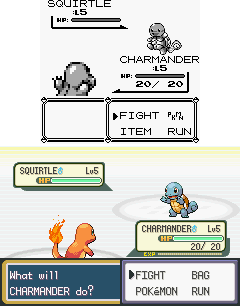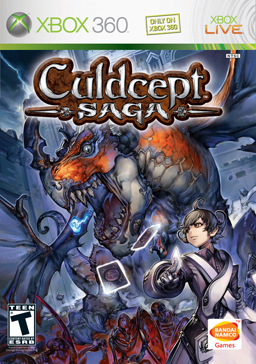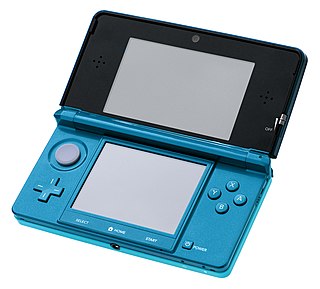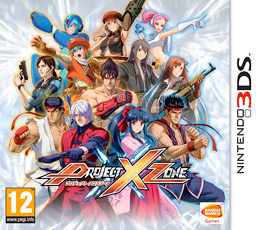
The Legend of Zelda is a media franchise created by the Japanese game designers Shigeru Miyamoto and Takashi Tezuka. It is primarily developed and published by Nintendo; some portable installments and re-releases have been outsourced to Flagship, Vanpool, Grezzo, and Tantalus Media.

A video game remake is a video game closely adapted from an earlier title, usually for the purpose of modernizing a game with updated graphics for newer hardware and gameplay for contemporary audiences. Typically, a remake of such game software shares essentially the same title, fundamental gameplay concepts, and core story elements of the original game, although some aspects of the original game may have been changed for the remake.

Green Hill Zone is the first level of the platform game Sonic the Hedgehog, which released for the Sega Genesis in 1991. The level is grassy and lush, with environmental features such as palm trees, vertical loops and cliffs, and is the home of numerous forest animals. Like the game's other levels, Green Hill Zone comprises three acts; in the third, Sonic fights antagonist Doctor Eggman before moving to the second level, Marble Zone. It was constructed by level designer Hirokazu Yasuhara with its musical theme by Masato Nakamura.

Pokémon is a Japanese series of video games developed by Game Freak and published by Nintendo and The Pokémon Company under the Pokémon franchise. It was created by Satoshi Tajiri with assistance from Ken Sugimori. The first games, Pocket Monsters Red and Green, were released in 1996 in Japan for the Game Boy, later released outside of Japan as Pokémon Red Version and Blue Version. The main series of role-playing video games (RPGs), referred as the "core series" by their developers, has continued on each generation of Nintendo's handhelds. The most recently released core series games, Pokémon Scarlet and Violet, were released on November 18, 2022, for the Nintendo Switch.
The Virtual Console is a defunct line of downloadable retro video games for Nintendo's Wii and Wii U home video game consoles and the Nintendo 3DS family of systems. The Virtual Console lineup consisted of titles originally released on past home and handheld consoles and were run in their original forms through software emulation, therefore remaining mostly unaltered, and could be purchased from the Wii Shop Channel or Nintendo eShop for between 500 and 1200 Wii Points, or using real currency, with prices depending on the system, rarity, and/or demand.

Culdcept is a turn-based strategy video game, and the first game in the Culdcept series. It has drawn comparisons to other modern strategy titles, and also shares features with non-video games Monopoly and Magic: The Gathering. The game was initially released only in Japan for the Sega Saturn and PlayStation, but was ported to the Nintendo DS in 2008 as Culdcept DS.

Dinosaur King is a Japanese card-based arcade game from Sega that uses similar gameplay mechanics to Mushiking. The game was revealed in JAMMA 2005. A Nintendo DS version was also later released.

Culdcept Saga is a video game in the Culdcept series developed exclusively for the Xbox 360 video game console. It is the first entry for a Microsoft console in the franchise.

Ace Attorney is a visual novel adventure video game franchise developed by Capcom. With storytelling fashioned after legal dramas, the first entry in the series, Phoenix Wright: Ace Attorney, was released in 2001; since then five further main series games, as well as various spin-offs, prequels, and high-definition remasters for newer game consoles have been released. Additionally, the series has been adapted in the form of a live-action film and an anime; it is the base for manga series, drama CDs, musicals and stage plays. The player takes the roles of various defense attorneys, including Phoenix Wright, his mentor Mia Fey, as well as his understudies Apollo Justice and Athena Cykes who investigate cases and defend their clients in court. They find the truth by cross-examining witnesses and finding inconsistencies between the testimonies and the evidence they have collected. The cases last a maximum of three days; the judge determines the outcome based on evidence presented by the defense attorney and the prosecutor.

Animal Crossing is a social simulation video game series developed and published by Nintendo. The series was conceptualized and created by Katsuya Eguchi and Hisashi Nogami. In Animal Crossing, the player character is a human who lives in a village inhabited by various anthropomorphic animals and can do various activities like fishing, insect catching, and fossil hunting. The series is notable for its open-ended gameplay, chill gameplay, cute dialogue, nice hourly music, and use of the video game console's internal clock and calendar to simulate real passage of time.

Kirby is an action-platform video game series developed by HAL Laboratory and published by Nintendo. The series centers around the adventures of Kirby as he fights to protect and save his home on the distant Planet Popstar from a variety of threats. The majority of the games in the series are side-scrolling platformers with puzzle-solving and beat 'em up elements. Kirby has the ability to inhale enemies and objects into his mouth, spitting them out as a projectile or eating them. If he inhales certain enemies, he can gain the powers or properties of that enemy manifesting as a new weapon or power-up called a Copy Ability. The series is intended to be easy to pick up and play even for people unfamiliar with action games, while at the same time offering additional challenge and depth for more experienced players to come back to.

A Mii is a customizable avatar used on several Nintendo video game consoles and mobile apps. The name Mii is a portmanteau of "Wii" and "me", referring to them typically being avatars of the players. Miis were first introduced on the Wii console in 2006 and later appeared on the DS, 3DS, the Wii U, the Switch, and various apps for smart devices such as Miitomo. Miis can be created using different body, facial and clothing features, and can then be used as characters within games on the consoles, either as an avatar of a specific player or in some games portrayed as characters with their own personalities. Miis can be shared and transferred between consoles, either manually or automatically with other users over the internet and local wireless communications.

Culdcept Second is a turn-based strategy video game for the Dreamcast released on 2001. It is the sequel to the Saturn title Culdcept. An enhanced version of the game, Culdcept Second Expansion, was released for the PlayStation 2 on September 26, 2002. The expansion was marketed in North America as Culdcept, and published by NEC Interchannel in December 2003.

Mario is a Japanese multimedia franchise created by Japanese game designer Shigeru Miyamoto for video game company Nintendo, which produces and publishes its installments. Starring the titular Italian plumber Mario, it is primarily a video game franchise but has extended to other forms of media, including television series, comic books, a 1993 feature film, a 2023 animated film, and theme park attractions. The series' first installment was 1983's Mario Bros. even though Mario made his first appearance in 1981's arcade game Donkey Kong and had already been featured in several games of the Donkey Kong and Game & Watch series. The Mario games have been developed by a wide variety of developers. Mario games have been released almost exclusively for Nintendo's various video game consoles and handhelds, from the third generation onward.

The Nintendo 3DS is a foldable handheld game console produced by Nintendo. Announced in March 2010 as the successor to the Nintendo DS, the console was released originally on February 26, 2011 and went through various revisions in its lifetime, produced until 2020. The system features backward compatibility with the Nintendo DS's library of video games. As an eighth-generation console, its primary competitor was Sony's PlayStation Vita.

Sonic Colors is a 2010 platform game published by Sega. It follows Sonic's quest to stop his nemesis Doctor Eggman from enslaving an alien race and taking over the world. The gameplay is similar to prior Sonic games, with players collecting rings and defeating enemies; the camera perspective often switches from third-person to side-scrolling perspectives. The game also introduces Wisps, power-ups the player can use to increase attack power and reach new areas.
There are at least nine video games that Michael Jackson has composed music for or are directly related to him. Sega was the developer for at least six of them: the arcade and Mega Drive/Genesis versions of Michael Jackson's Moonwalker, Michael Jackson in Scramble Training for arcades, Sonic the Hedgehog 3 for the Mega Drive/Genesis, and Space Channel 5 and Space Channel 5: Part 2 for the Dreamcast. The other three were produced by other companies: Moonwalker for home computers by U.S. Gold, Michael Jackson: The Experience by Ubisoft, and Planet Michael by SEE Virtual Worlds.

Project X Zone is a crossover tactical role-playing video game for the Nintendo 3DS developed by Monolith Soft with assistance from Capcom and Red Entertainment and published by Namco Bandai Games. It is a follow-up to Namco × Capcom and features characters from Namco Bandai, Capcom, and Sega. The game was released on October 11, 2012 in Japan; June 25, 2013 in North America; and July 5, 2013 in Europe. Project X Zone received mixed to positive reviews upon release; praise went towards the game's cast, combat system, and presentation, but criticism was directed at its repetitive gameplay and confusing storyline.

Hatsune Miku and Future Stars: Project Mirai is a 2012 rhythm game created by Sega and Crypton Future Media for the Nintendo 3DS. The game is a spin-off of the Hatsune Miku: Project DIVA series of Vocaloid rhythm games and was first released on March 8, 2012 in Japan with no international release. Like the original, the game primarily makes use of Vocaloids, a series of singing synthesizer softwares, and the songs created using them, most notably the virtual-diva Vocaloid Hatsune Miku. It is also the first game in the franchise to include a Vocaloid made by Internet Co., Ltd.; the mascot of Megpoid, Gumi, appears as a guest star.

Culdcept Revolt is a turn-based strategy video game developed by OmiyaSoft for the Nintendo 3DS. It is part of the Culdcept series. The game was released in July 2016 in Japan by Nintendo and in October 2017 internationally by NIS America.


















